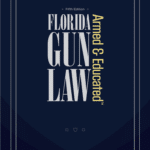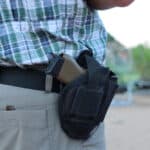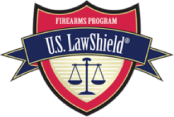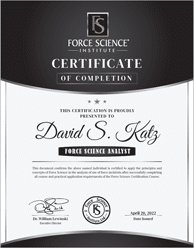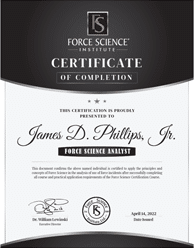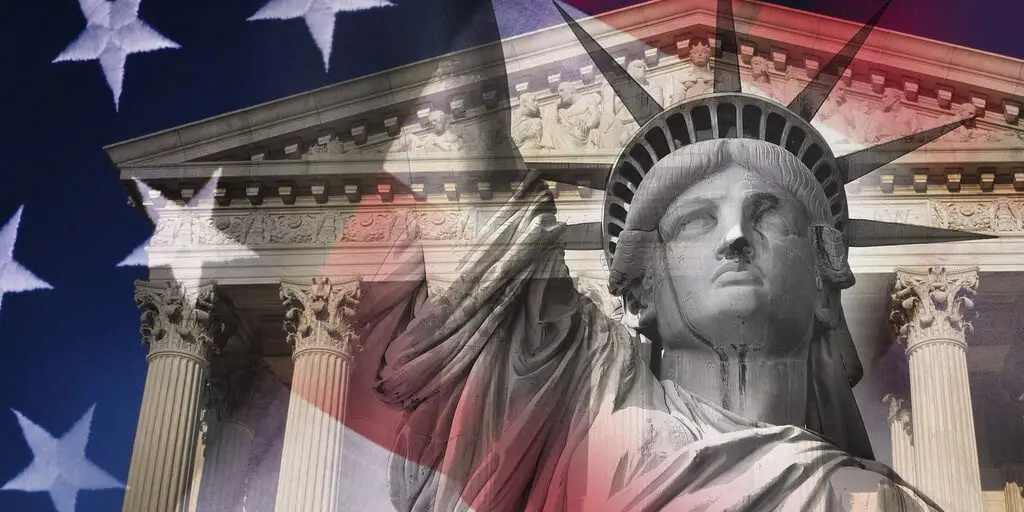
- June 23, 2022
- |
- Carry Laws,Concealed Carry License,Latest News
NY Carry Law Unconstitutional- Huge win for 2A
United States Supreme Court finds New York Carry Law Unconstitutional
“The Second Amendment guarantees an individual right to possess and carry weapons in case of confrontation. . .”
On June 23, 2022, the Supreme Court of the United States ruled as unconstitutional New York’s requirement that a person show “proper cause” in order to possess a handgun for self-defense. Proper cause was defined as “special need for self-protection distinguishable from the general community.” The 6-3 decision highlights many important issues about the Second Amendment and the right to bear arms. The case, New York State Rifle & Pistol Association, Inc. v. Bruen, will likely have a massive impact on the interpretation of gun laws and the right to carry in future decisions. This article will discuss the court’s decision, their reasoning, and what the decision means about the future of gun laws in the United States.
Facts of the Case
This case arose after two petitioners, Brandon Koch and Robert Nash, were denied unrestricted licenses to carry a handgun in public under New York’s “proper cause” law (N.Y. Penal Law Ann. § 400.00(2)(f)). Neither of them were able to show a special interest in possessing firearms outside of the generalized interest of self-defense. The two sued the state officials responsible for overseeing the processing of license applications, claiming that their Second and Fourteenth Amendment rights were violated. Their claim was originally dismissed at the state level, but the U.S. Supreme Court exercised jurisdiction and heard the case.
The Court’s Holding – NY Carry Law Unconstitutional
“New York’s proper-cause requirement violates the Fourteenth Amendment by preventing law-abiding citizens with ordinary self-defense needs from exercising their Second Amendment right to keep and bear arms in public for self-defense.”
May Issue States likely to become SHALL issue states
The Court engaged in an over 60-page analysis discussing New York’s law, the history of the right to bear arms, and concerns over the constitutionality of New York’s restriction. In the end, it was found that the proper cause requirement was a violation of the 14th Amendment (which guarantees all constitutional rights to individuals at a state level). Citizens with ordinary self-defense needs have the right to keep and bear arms. The Court ordered the judgment of the state court reversed and remanded the case for further proceedings by the state, requiring their new analysis be consistent with the U.S. Supreme Court’s ruling. This holding will also affect similar laws in five other states which required special need to carry a firearm. These and any other “may-issue” states will no longer be able to arbitrarily deny a person’s right to bear arms when that person cannot show a special need for the firearm.
Are States Still Allowed to Restrict or Limit the Carry of Firearms?
“States could not altogether prohibit the public carry of arms protected by the Second Amendment . . .”
The Court’s ruling finding the NY carry law unconstitutional does not prohibit states from regulating the carry of firearms. States may still require a person to have a license to carry a firearm for self-defense. The Supreme Court instead has essentially ruled that a state may not prevent a person from carrying a firearm because they do not have a special reason for doing so, and that carrying a firearm for lawful self-defense is a legitimate reason to be permitted to carry. States must respect the rights granted under the Second Amendment just as they must respect every other constitutional right. While the right is not unlimited, it must not be restricted simply because an individual can’t show that they have a special need for it. After an analysis of historical restrictions on the right to bear arms, the court stated that:
The historical evidence from antebellum America does demonstrate that the manner of public carry was subject to reasonable regulation, but none of these limitations on the right to bear arms operated to prevent law-abiding citizens with ordinary self-defense needs from carrying arms in public for that purpose.
It is clear that public carry of firearms is still “subject to reasonable regulation.” While Justices in the dissent did state that this case may be used to overturn many other regulations, it does not appear that the majority ruling actually prevents states from regulating the carry of firearms, as long as the regulations are reasonable. This means that states may still require a permit or license to carry in public, and they may still prohibit open carry (Watch our webinar on Florida’s CWFL). This decision also does nothing to limit the right of private property owners to prohibit firearms on their property.
Does the Second Amendment Apply to Modern Firearms?
“Whatever the likelihood that handguns were considered ‘dangerous and unusual’ during the colonial period, they are today ‘the quintessential self-defense weapon.’”
If you have paid attention to the gun debate in America, you have almost certainly heard proponents of stricter gun control state that the Second Amendment does not apply to modern firearms. Many people claim that the Founding Fathers could not have envisioned the weapons of today, and that their language in the Second Amendment therefore must not include modern weapons. People claim this despite the fact that the Fourth and Fifth Amendments apply to computers, cars and cell phones, and the First Amendment applies to speech on computers. Fortunately, the Court found that the Second Amendment certainly does apply to modern firearms. Historical laws prohibiting people from carrying “dangerous and unusual” weapons consider weapons as they are viewed by the common person. While a person in the 1700s may find a modern handgun dangerous and unusual, the court found that modern handguns are “the quintessential self-defense weapon.”
Can Felons Now Carry Firearms?
“It is undisputed that petitioners Koch and Nash—two ordinary, law-abiding, adult citizens—are part of ‘the people’ whom the Second Amendment protects.”
The Supreme Court’s ruling in this case does nothing to change laws prohibiting certain persons from possessing or carrying firearms. The decision was specifically limited to ensuring the rights of law abiding citizens with ordinary self-defense needs from exercising their right to keep and bear arms. That is not to say that the decision will never be cited in future cases arguing that other limitations are unconstitutional. However, the decision on its own certainly does not affect Federal or State laws which prohibit possession of firearms by felons, users of controlled substances, minors, etc.
Is the Second Amendment as Powerful as Other Constitutional Amendments?
“The constitutional right to bear arms in public for self-defense is not a second-class right, subject to an entirely different body of rules than the other Bill of Rights guarantees.”
No constitutional right requires a person to show special need before they receive its protections. A person does not need to show special need to practice their religion or exercise their free speech rights, no matter how unpopular their opinion. A person has the right to be free from unreasonable searches and seizures, regardless of their background or history. The Supreme Court ruled that the Second Amendment is no different. “The exercise of other constitutional rights does not require individuals to demonstrate to government officials some special need. The Second Amendment right to carry arms in public for self-defense is no different.”
The gun debate in America is far from over, but the Supreme Court’s decision in this case is an absolute win for gun owners everywhere. While firearms are still heavily regulated, it is good to see that the highest court in the United States still respects the constitutional right to bear arms, and that they are willing to act when regulations become entirely unreasonable.
For more information on carry laws, contact our expert firearm lawyers.
Get in touch

"*" indicates required fields
Copyright © 2022-2025 The Firearm Firm All rights reserved.

